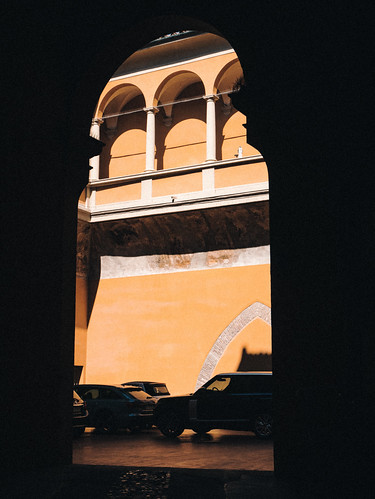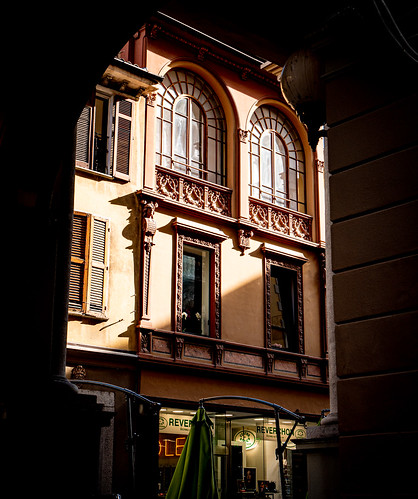Posts by author:
Chris Bertram
It is reported that Geoffrey Hinton “the godfather of AI” is leaving Google and has voiced some serious worries about the future of humanity as AI continues to develop. I don’t have anything interesting to say about grey gloop or paperclips or AI robots waging wars, but I have been thinking a bit about the impact of AI on creative work, not limited to the production of student essays. Already we are seeing voice actors replaced by clones of their own voices and professional translators reduced to editing the output of machine translation (almost as much work, but for less money, I’m told). So what happens if AI can produce artworks (or should that be “artworks”?) such as plays, paintings, pseudo-photographs, movie scripts, novels, songs, symphonies that are indistinguishable from human productions and that people consume and enjoy? Well, one effect might be that it becomes even harder for people to earn a living producing artworks for the market than it is now. But that doesn’t mean that human production will disappear. And the reason that it won’t is because our interest in creative work isn’t just about the object of production but about its process and the exercise of our human powers (“life’s prime want”, as somebody once said.)
The invention of photography in or around 1839 may have made possible a more accurate representation of reality and in doing so may have displaced some forms of drawing whose purpose was the utilitarian representation of reality, but it hardly stopped people from painting and drawing and, indeed, gave them a new medium in which to express themselves. AI may be, even is, able to produce something that looks like a good drawing of an object, but it cannot replace the human activity of looking hard at that object and co-ordinating hand and eye to produce my (however pathetic and inadequate) represention of it. AI may be able to produce a song, but it cannot substitute for the experience of writing a song and singing it. So I suspect that even if AI gets very good and produces work indistinguishable from human work, it will not and cannot fully replace human work. It will, perhaps, somewhat devalue the artwork as the object of contemplation and consumption, except insofar as we continue to admire works as the product of specifically human intention and execution (just as we would continue to admire the moves of a talented human footballer even in a world where AI-driven robo-footballers were available). But the artwork as the product of a human process, with a renewed focus on that process as the real activity of doing and making will not cease to exist. The Milton who produced Paradise Lost “as a silkworm produces silk” will continues to write; the Leipzig literary proletarian will not. Indeed there may be more of creative labour, since if AI provides for our basic needs, we’ll have the time available to hunt in the morning and criticize after dinner, as well as drawing, painting, cooking, and writing short stories and songs, just as we have a mind. (That is, unless we are enserfed to spend our time catering to the whims of Jeff and Elon instead.)
In a democracy one might, naively, imagine that political deliberation would involve the presentation of the arguments that people think bear on the question at hand. That is, if someone is in favour of a policy they would present the arguments that they believe support it and if someone is against it they they would do the opposite. One of the surreal aspects of British parliamentary debate on refugees and asylum is that neither the government nor the opposition do anything of the kind, and nor, for that matter do the media do much to improve things.
Consider, that everybody knows that Rishi Sunak’s harsh denial of the right to claim asylum of those who arrive “illegally” is motivated by the fact that the base of the Tory party and a sizeable chunk of “red wall” voters are strongly anti-immigration and that Tory strategists are concerned about the “small boats” issue, both because they are worried that a lack of border control gives off a sign of incompetence and because they want to expose Labour as “weak” on “illegal immigration”. In the Tory press, refugees and asylum seekers are constantly demonized as freeloaders, economic migrants, and young male invaders who pose a threat both of sexual predation and terrorism. (The European far-right, including Italy’s Salvini, France’s Zemmour, and the German AfD, in praising the British policy, do so explicitly as keeping the brown hordes at bay.) Labour, on the other hand, while they have a poor record of support for refugee rights, at least stand for maintaining the current human rights framework and upholding the right to claim asylum as set out in the 1951 Convention.
[click to continue…]
The UK is a signatory of the 1951 Refugee Convention, along with a number of other international instruments providing for humanitarian protection. The Convention provides that someone who is a refugee – a status that they have on the basis of their objective circumstances, having a well-founded fear of persecution on specific grounds and being outside their country of citizenship or habitual residence – must be granted certain protections by signatory countries. The most important of these is that they not be sent back to a place where they are at risk of persecution. The weakness of the Convention is that people cannot usually secure recognition as refugees by a country unless they claim asylum on its territory. Accordingly, wealthy nations seek to make it the case that those wanting protection cannot physically or legally get onto the territory to make a claim. That way, states can both vaunt their status as human rights defenders (“we support the Convention”) and nullify its effect in practice.
Today, ostensibly as a response to the “small boats” crisis, which has seen tens of thousands of people from countries such as Afghanistan and Iran arrive in the south of England after crossing the channel, the Conservative government has announced new plans to deter refugees. Those arriving will no longer be able to claim asylum in the UK, as the government will not try to find out whether they are refugees or not, they will be detained, and then they will be removed to their country of origin or to a third country (potentially breaching the non-refoulement provision of the Convention). The plan has been to send them to Rwanda, although because of legal challenges nobody has actually been sent and, anyway, Rwanda lacks the capacity. Even the plan to detain arrivals in the UK runs up against the problem that the UK lacks the accommodation to do so. In addition, people who cross in small boats are to be denied the possibility of ever settling in the UK or of securing citizenship. So as well as being a stain on the UK’s human rights record and a measure of great cruelty, the plans appear to be practically unworkable.
The government, echoed by the Labour opposition, blames “evil smuggling gangs” as the “root cause” of the small boats crisis. But, of course, the real root cause of the crisis are the measures the UK takes to evade its obligations under the Refugee Conventions, measures that make it necessary for anyone wanting to claim asylum on the territory to enter without the authorization of the UK government. People at risk of persecution, whether Iranian women protesting against the veil, or Afghan translators who worked with the British government, are not granted regular visas to hop on a flight, nor will they be able to get to the UK by road or rail. The UK has sealed these routes, making those who want to cross turn to the boats as a solution.
[click to continue…]
I had a little exchange on twitter and Mastodon yesterday on reading habits. The initial cause of the exchange was the claim that book reading is in decline, and I asked for some evidence of this, which my interlocutor duly provided in the form of a link to a survey of British readers by Booktrust from 2013. The survey documents the reported reading habits of British people, showing them to be correlated with things like age and socio-economics status, with some worrying drop-off in book reading among the young. I’m sure that the advent of TV and even the radio also brought some declines, and it is always hard to know how seriously to take such worries: young people may be reader shorter pieces of writing on the internet, they aren’t just watching TikTok videos.
However my attention was caught by another statistic: a claim that 6 per cent of respondents, “bookworms”, get through around 12 books per month (or 144 per year). Now I read a lot – as I perceive it – and I complete between 50 and 60 books most years. When I read Les Misérables, albeit in French, that took up nearly a quarter of my annual reading. Ulysses, which needed a lot of looking up, reading on the side etc, took me about a fortnight, and I think I went too fast in places. My guess is that most of these super-readers are not reading such works, or the Critique of Pure Reason, but but rather short thrillers and the like. I can get through a PG Wodehouse in a day (and what a joy that is!), so that would be a way to boost the numbers if boosting the numbers alone were something worth caring about, which it isn’t.
There’s also a question about the density and complexity of the text: how fast should you read? Many literary texts demand close attention at the level of the sentence and below, whereas some genre fiction does not. Literary texts also require digestion and contemplation, which in turn demands time away from them while your brain does the processing. Sometimes they call for re-reading in the light of later passages that draw attention to the significance of an earlier element. So, no, having flinched at my inadequacy compared to the 6 per cent of super-readers, my considered view is that my own consumption is about right, if not a little too high.










